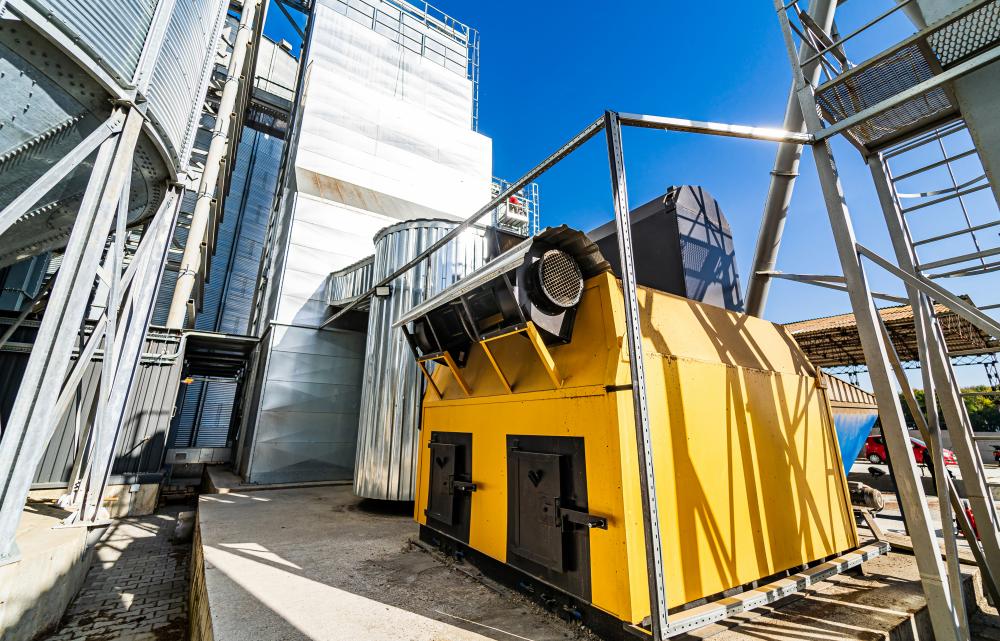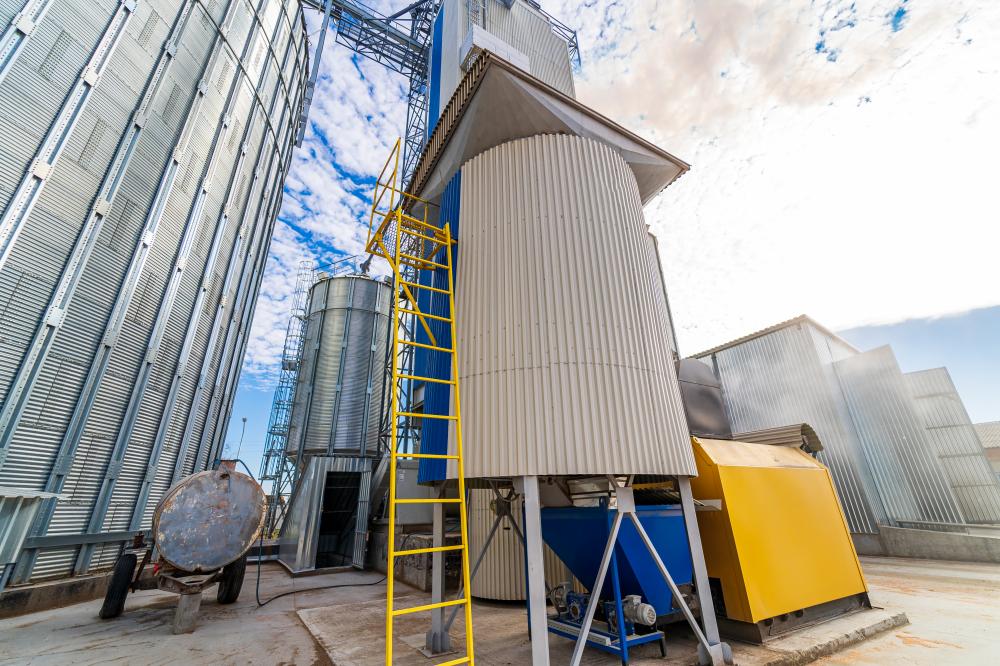
The Role of Biomass Dryers
As we delve into the world of biomass energy, the significance of the biomass dryer cannot be overstated. These
systems are pivotal in transforming raw biomass materials into a more energy-efficient and economically viable form.
Drawing on my experiences at Player Design Inc., where pioneering sustainable engineering solutions are at the heart
of what we do, I’ve come to appreciate the nuanced challenges and opportunities in optimizing biomass drying
technologies.
The Importance of Drying Biomass
Drying plays a crucial role in enhancing the biomass fuel’s quality and energy content. Wet biomass not only
hampers the efficiency of energy production but also raises transportation costs and increases emissions. By
extracting moisture, we elevate the biomass material’s calorific value, making it a more potent source of
renewable energy.
Types of Biomass Dryers
In the realm of biomass preparation, a variety of drying technologies are employed. From rotary dryers to flash
dryers, each type serves a specific function, tailored to the unique characteristics of the biomass material in
question. At Player Design Inc., we often harness the versatility of rotary dryers for their robustness in handling
diverse biomass types, from wood chips to agricultural residues.
Optimizing Biomass Dryer Efficiency
Enhancing dryer efficiency is tantamount to amplifying the sustainability of biomass energy production. Through
innovative design and precise control systems, we strive to reduce energy consumption while maximizing output
quality. Employing heat recovery systems and optimizing the drying process flow are just a few strategies to achieve
remarkable efficiencies.
Environmental Impacts and Solutions
The environmental implications of biomass drying processes are a significant concern. Emissions and air quality are
at the forefront of challenges needing addressing. Adopting cleaner combustion technologies and integrating
emissions control systems underscore our commitment at Player Design Inc. to mitigate these environmental impacts.
Case Studies and Success Stories
Real-world applications of our biomass dryer technologies reveal the transformative impact on efficiency and
sustainability. For instance, a recent project involving the drying of wood chips for biomass fuel showcased not
only a reduction in energy consumption but also a substantial decrease in emissions, aligning with our goal of
engineering a more sustainable world.
Future Trends in Biomass Drying
The future of biomass drying is ripe with innovation and potential. As we push the boundaries of current
technologies, exploring advancements in dryer efficiency and environmental performance becomes imperative.
Sustainable practices, coupled with technological innovation, will undoubtedly shape the future trajectory of
biomass drying solutions.
Personal Insights from the Field
Having been directly involved in the design and implementation of biomass dryers, I can attest to the challenges and
rewards of this field. Every project has presented unique hurdles, from handling specific biomass materials to
integrating advanced control systems. Yet, the satisfaction derived from engineering solutions that contribute to a
more sustainable and energy-efficient future is unparalleled.
The Importance of Client Customization
At Player Design Inc., we understand that each client’s needs are unique. Customizing biomass drying systems to
fit specific material characteristics and project requirements is crucial for achieving optimal performance. This
tailored approach not only ensures the technical success of a system but also maximizes the economic return for our
clients.
Our commitment to a client-centric approach and our dedication to environmental stewardship have positioned us as
leaders in the biomass drying industry. By continuously embracing innovation and pushing the limits of current
technologies, we aim to contribute significantly to the renewable energy landscape, making biomass an increasingly
viable and sustainable energy source.
Concluding Thoughts
Biomass dryers play a pivotal role in the renewable energy sector, transforming biomass into a more efficient and
environmentally friendly fuel. The work we do at Player Design Inc. is not just about improving technology; it’s
about fostering a sustainable future. As we continue to innovate and refine our approaches, the promise of biomass
as a key player in the renewable energy mix becomes ever more realized.
Contacting Player Design Inc.
For those interested in learning more about our biomass dryer solutions and how we can assist in your renewable
energy projects, please reach out. Our team is eager to share our expertise and help you achieve your sustainability
and efficiency goals.
- Custom Engineering Solutions
- Advanced Control Systems
- Emissions Reduction Strategies
- Client-Focused Design and Implementation

What is a biomass dryer?
A biomass dryer is a specialized device designed to reduce the moisture content in biomass material, such as
wood chips, agricultural residues, or waste products from the food industry. By applying heat and ventilation,
the dryer extracts moisture from the material, making it lighter and more energy-efficient for combustion or
processing into biofuels. At our company, we often liken the biomass dryer to a giant oven, fine-tuned for
efficiency and environmental sustainability. This analogy helps illustrate the meticulous balance between energy
input and moisture removal we strive to achieve in each project.
What is dried biomass?
Dried biomass refers to organic materials that have undergone a drying process to lower their moisture content.
This transformation makes the biomass more suitable for use as a renewable energy source or as a raw material in
various industrial applications. For example, drying wood chips increases their combustion efficiency, making
them a more potent form of fuel. From my hands-on experience, I’ve seen firsthand how dried biomass not only
burns cleaner but can significantly cut down on transportation and storage costs due to its reduced weight and
volume.
What are the advantages of biomass drying?
The advantages of biomass drying are multifaceted. Firstly, it enhances the energy value of the biomass, making
it a more potent and efficient fuel. Secondly, drying biomass reduces its weight and volume, which translates to
lower transportation and storage costs. Furthermore, it mitigates the risk of microbial degradation and
spoilage, extending the shelf life of the biomass. Our projects have consistently demonstrated these benefits,
offering both economic and environmental returns that underscore the critical role of drying in the biomass
value chain.
Why is dry biomass used instead of wet?
Using dry biomass instead of wet is primarily a matter of efficiency and sustainability. Wet biomass, with its
high moisture content, burns less efficiently, producing more smoke and pollutants. This inefficiency not only
affects the bottom line for businesses relying on biomass as a fuel but also has broader environmental
implications due to increased emissions. Drawing from our project archives, the difference in performance and
environmental impact between dry and wet biomass is stark, making drying an essential step in biomass
preparation.
What are the future trends in biomass drying?
The future of biomass drying is poised at the intersection of innovation and sustainability. We are exploring
advancements in dryer technology that promise higher efficiency rates and lower emissions. Heat recovery
systems, for instance, capture and reuse heat from the drying process, offering significant energy savings.
There’s also a growing interest in integrating renewable energy sources to power the dryers, further
reducing the carbon footprint. These trends not only reflect our commitment to environmental stewardship but
also align with the industry’s push towards cleaner, more sustainable energy solutions.
Why is client customization important in biomass drying systems?
Client customization is critical because no two biomass projects are exactly alike. Each type of biomass
material — be it wood chips, agricultural residues, or even waste from food production — has unique
characteristics that require specific drying conditions. By customizing our solutions, we tailor the drying
process to fit the material’s needs precisely, ensuring optimal performance and efficiency. Personalized
solutions also allow us to address the unique logistical, economic, and environmental considerations of each
client, reinforcing the value and effectiveness of our collaborative approach.